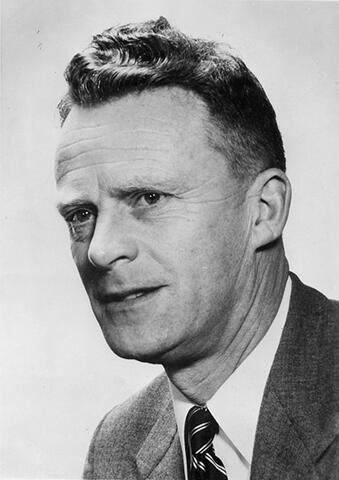
Área de título y declaración de responsabilidad
Título apropiado
Arthur J. Porter - Portrait
Tipo general de material
- Graphic material
Título paralelo
Otra información de título
Título declaración de responsabilidad
Título notas
Nivel de descripción
Item
Institución archivística
Código de referencia
Área de edición
Declaración de edición
Declaración de responsabilidad de edición
Área de detalles específicos de la clase de material
Mención de la escala (cartográfica)
Mención de proyección (cartográfica)
Mención de coordenadas (cartográfica)
Mención de la escala (arquitectónica)
Jurisdicción de emisión y denominación (filatélico)
Área de fechas de creación
Fecha(s)
-
[1960] (Criação)
Área de descripción física
Descripción física
1 photograph : b&w-drymounted ; 11 x 8 cm
1 negative : b&w ; 12.5 x 10 cm
Área de series editoriales
Título apropiado de las series del editor
Títulos paralelos de serie editorial
Otra información de título de las series editoriales
Declaración de responsabilidad relativa a las series editoriales
Numeración dentro de la serie editorial
Nota en las series editoriales
Área de descripción del archivo
Nombre del productor
Historial de custodia
Alcance y contenido
Head and shoulders portrait of Arthur J. Porter, dean of Engineering.
Bio/Historical Note: Arthur J. Porter was born in 1910 in Ulverston, England. While studying at the University of Manchester, Porter helped build a differential analyzer - one of the world’s first analog computers, using a Mecanno construction set. In 1937 he accepted a fellowship at the Massachusetts Institute of Technology (MIT). Porter helped build the Rockefeller differential analyser - the most ambitious analog/digital computer built to date. It was used extensively for projects during World War II. In 1949 Porter accepted a position with Ferranti Canada and worked on the DATAR system. DATAR combined data from a convoy of ships’ sensors, providing a single ‘overall view’ that allowed the commander to make better-informed decisions. Soon afterwards, in the early 1950s, Porter was one of six Canadians selected to work on Project Lamp Light; working on data processing expertise was crucial to this top-secret North American air defence initiative. In 1958 Porter became the fourth dean of Engineering at the University of Saskatchewan. There, along with Norman Moody and Dr. William Feindel, Porter established Canada’s first biomedical research program. In 1962 Porter moved to the University of Toronto to chair their new Industrial engineering department - one of the first in the world. While there, Porter also helped establish the University’s biomedical program. During the late 1960s he was involved in projects that bridged the gap between culture and science. He was the first acting director of the University of Toronto’s Centre for Culture and Technology. Porter also chaired the Science and Technology Advisory Committee when Montreal hosted the World’s Fair-Expo 67. Porter died in 2010 in Winston-Salem, North Carolina at age 99.
Área de notas
Condiciones físicas
Origen del ingreso
Arreglo
Idioma del material
Escritura del material
Ubicación de los originales
Disponibilidad de otros formatos
Restricciones de acceso
There are no restrictions on access.
Condiciones de uso, reproducción, y publicación
Photographer: Gibson
Copyright holder: University of Saskatchewan
Other terms: Responsibility regarding questions of copyright that may arise in the use of any images is assumed by the researcher.
Instrumentos de descripción
Materiales asociados
Acumulaciones
Location note
Vol. 82 / Neg. Vol. 13
Identificador/es alternativo(os)
Área de número estándar
Número estándar
Puntos de acceso
Puntos de acceso por materia
Puntos de acceso por lugar
Puntos de acceso por autoridad
- Gibson Photo ()

